SUMMARY
This is AI generated summarization, which may have errors. For context, always refer to the full article.

MANILA, Philippines – After two years of grappling with COVID-19 and the world’s longest lockdown, the Philippines remains muddled with an inadequate pandemic response in a crisis that is long from over.
Taking off from the #AtinAngPilipinas agenda created by more than 150 organizations, health advocates and medical workers called on voters to choose candidates with comprehensive plans to improve the country’s underdeveloped healthcare system during MovePH’s #AtinAngPilipinas town hall on healthcare and pandemic response.
This was co-organized with Bantay Bakuna, Coalition for People’s Right to Health, Council for Health and Development, Kilos na para sa Kabuhayan, Kalusugan at Karapatan, Juan Health PH, and Philippine Medical Students’ Association
The panelists of the town hall said that Filipinos must assess candidates’ health platforms vis-a-vis the needs of the country. The said we must choose leaders with platforms that prioritize improving overall healthcare capabilities, as the country continues to be one of the most high-risk countries for COVID-19. As of this posting, the Philippines was dead last in response ranking among the 53 countries in Bloomberg’s pandemic resilience assessment.
Most presidential candidates’ strategies so far hinge on constructing more health facilities and increasing the salary of workers to boost morale in the sector, ultimately improving access to care for Filipinos.
However, there is more that can be done to further improve the healthcare system. This is why Dr. Joshua San Pedro, co-convener of Coalition for People’s Right to Health, reminded voters to persist in voicing out demands and critically assess the efforts of candidates in resolving these issues, not only in their platforms but also their contributions amid the pandemic.
“We have to evaluate not just what’s included in their platform but also the history: What have they done towards this point? Let’s look at what they’ve done for the people in terms of healthcare. We have to look at what they’ve done in legislation. For those candidates [who have] bailiwicks in provinces, what is the state of the area?” he said in a mix of Filipino and English.
Panelists also emphasized that those we elect into office take the helm of our pandemic response and the direction of our healthcare system.
“The healthcare system is the most central issue because the pandemic is far from over. There’s a lot to fix.….It’s good to highlight that even before the pandemic, there were already many problems with our healthcare system. That’s why it’s pivotal we choose leaders with platforms for health,” Clark Trovela, national chairperson of the Philippine Medical Students Association, said.
Investing in our healthcare system and workers
So what can be done? Panelists in the town hall emphasized the need to make healthcare services accessible to more people.
Amid the pandemic, the Philippines’ healthcare system was burdened as hospital bed occupancy rates reached critical levels, personal protective equipment and testing kits ran short, and available medicines were menial. Meanwhile, many healthcare workers were met with meager pay and extreme fatigue due to severe understaffing.
Additionally, not all municipalities have government hospitals, and there are still provinces without COVID-19 testing facilities.
Part and parcel of improving accessibility is also ensuring that the healthcare system provides adequate support and benefits to workers. Short of their basic protections, healthcare workers will suffer the brunt of systemic woes.

San Pedro and Nadia De Leon, executive director of the Institute for Occupational Health and Safety Development, lamented how this is a long-standing issue in the country. De Leon shared how nurses, nursing aides, and other staff in private hospitals, for instance, receive less than the minimum wage, with some even experiencing delays in their salaries.
“The World Health Organization says that the ratio we need is one doctor per 1000 population, but over the years, we’ve been seeing one doctor for 33,000 [people]. In ensuring healthcare services, it’s even worse in geographically isolated and depressed areas,” added San Pedro.
Additionally, the persistence of flawed workplace conditions and regulations contributed to an increase in resignations in the health sector.
“Ang sakit tanggapin na ang mga workers natin ay namimili between kalusugan at kabuhayan (It’s hard to accept that our workers have to choose one between health and a livelihood),” voiced De Leon.
Trovela pointed out that the country produces a lot of healthcare workers, but many of them have opted to go abroad due to meager and delayed salaries and benefits, as well as weak job security.
San Pedro asserted that future leaders must invest in basic health interventions to alleviate existing prevention, early treatment, and response issues. This will require comprehensive public health policies and investments in adequate healthcare facilities, infrastructure, and benefits programs for healthcare workers.
“We really have to ensure that we have more health workers, and that workers don’t have to look for work abroad because they have the proper benefits, and proper salary to serve our communities and areas that are in need of healthcare. How will you be able to do that if you don’t have [an] adequate budget and facilities? It really involves looking at a systems approach, ensuring that there are proper investments, and as much as possible limiting what the pandemic is doing to our healthcare system,” he said in a mix of Filipino and English.
Investing in our future healthcare workers
These investments must also go toward ensuring our health workforce, Trovela said. This can include improving the health science education in the country, as well as developing context-based and community-oriented health courses that will inspire students to serve in their localities and enhance their capabilities.
Furthermore, Trovela shared that the government should focus on making health and science courses more accessible in the country, as tuition fees in medical schools are expensive.
He pointed out that further expanding the coverage and accelerating the Doktor Para Sa Bayan Act, which mandates the government to provide medical scholarships at state universities and colleges (SUCs), and in their private-owned counterparts in areas without SUCs. He added that this would encourage more scholars to pursue studies in public medical schools, eventually producing more doctors and other health workers.
“We should improve our health science education because that’s the foundation of our future health workers. It’s important to support these medical students and ensure that [the act’s coverage] expands,” he said in a mix of Filipino and English.
In light of all these, De Leon reminded voters that our choice of candidates will later dictate the route of our institutions. “Ang pinakamahalaga pa rin ang pagsamasama nating pagigiit at pagkilos na mafufulfill at matatamasan natin ang mga hingil natin,” asservated De Leon
(The most important thing is that we draw and act together so that we can fulfill and enjoy our demands.)
The #AtinAngPilipinas town hall on health and pandemic response was held on Saturday, February 12. It is the first in a series of town halls aimed to zero in on pertinent societal issues, especially in light of the upcoming 2022 national and local elections. The next town hall is scheduled on Saturday, February 26, this time focusing on livelihood and economy. – with reports from Kristen Matias/Rappler.com
Kristen Matias is a Rappler volunteer from Ateneo De Manila University. She is a junior pursuing a Bachelor of Science Degree in Legal Management, and two Minor Degrees in English Literature and Development and the Law.
Add a comment
How does this make you feel?
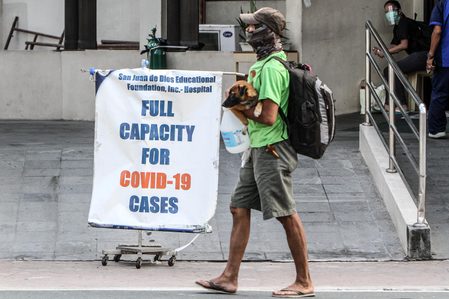

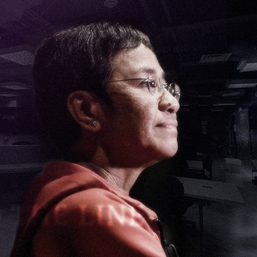
![[WATCH] #CourageON: History repeats itself?](https://www.rappler.com/tachyon/2022/09/community-show-ls.jpg?resize=257%2C257&crop=435px%2C0px%2C1080px%2C1080px)
![[WATCH] #CourageON: Bakit nakababahala ang pagbabawal ng libro?](https://www.rappler.com/tachyon/2022/09/rsz_pagbabawal_libro-ls2.jpg?resize=257%2C257&crop_strategy=attention)


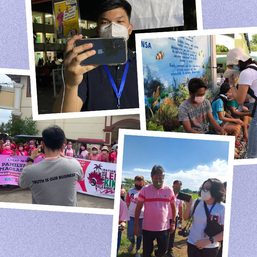
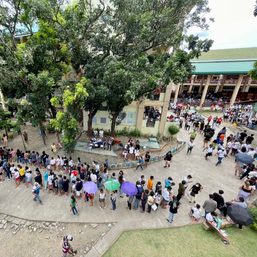
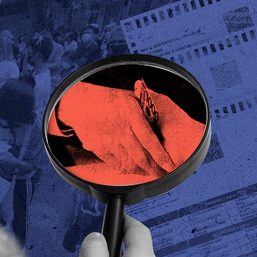


There are no comments yet. Add your comment to start the conversation.